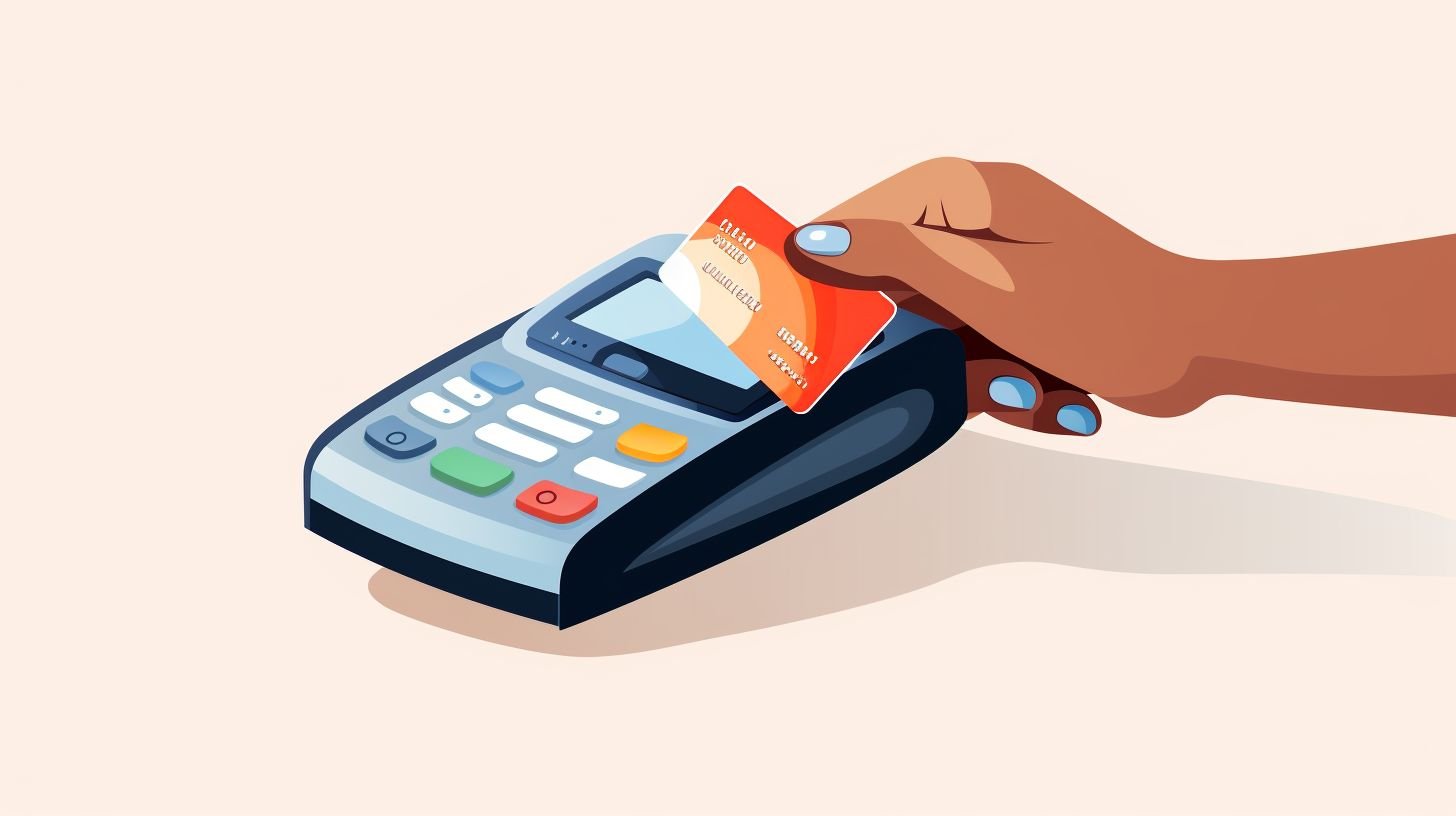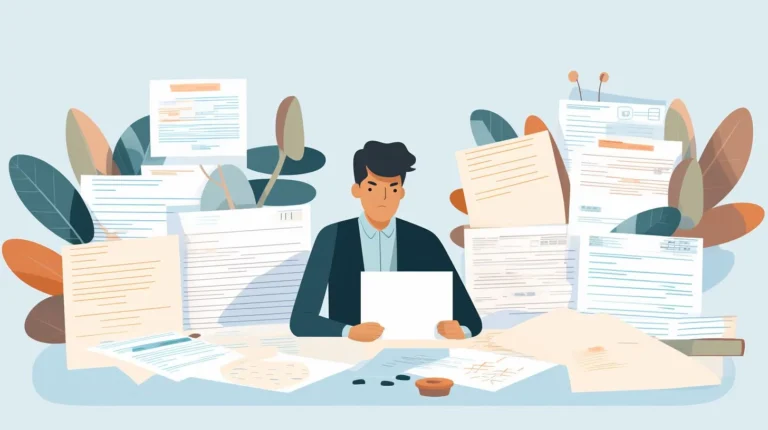Using Credit Cards to Improve Your Credit Score

Key Takeaways
- Credit cards can help improve your credit score by becoming an authorized user, using a secured card, or utilizing student or store cards.
- Maintaining a low credit utilization ratio of 30% or less is important for building good credit.
- Regularly reviewing your credit reports and handling bill payments effectively are key strategies for maintaining a good credit score.
Understanding Credit Scores and Their Importance
 Your credit score is a big deal. It’s a number that tells lenders how good you are with money. They look at this when you want to borrow money. The higher the score, the better your chances of getting loans or lines of credit with lower interest rates. So, why does having a high credit score matter? Having a high rating makes your financial life easier in many ways. For example, it can help you rent an apartment or get more data on your phone plan without having to pay extra money up front. In short, it opens doors for you and saves you money over time. Credit scores range between 300 and 850. A FICO Score or VantageScore over 700 is considered ‘good’, while anything above 800 is ‘excellent’. These numbers come from info in your credit reports from three main credit bureaus: Equifax, Experian, and TransUnion. Keeping track of these scores helps keep your financial health strong! Paying bills on time boosts your score – late payments hurt it. So does using too much of the available credit limit on cards; try to stick around thirty percent – that’s very important! Remember not to apply for new cards too often as this lowers ‘average age’ of accounts which hurts scores as well where limiting applications helps maintain them! So let’s manage our finances smartly!
Your credit score is a big deal. It’s a number that tells lenders how good you are with money. They look at this when you want to borrow money. The higher the score, the better your chances of getting loans or lines of credit with lower interest rates. So, why does having a high credit score matter? Having a high rating makes your financial life easier in many ways. For example, it can help you rent an apartment or get more data on your phone plan without having to pay extra money up front. In short, it opens doors for you and saves you money over time. Credit scores range between 300 and 850. A FICO Score or VantageScore over 700 is considered ‘good’, while anything above 800 is ‘excellent’. These numbers come from info in your credit reports from three main credit bureaus: Equifax, Experian, and TransUnion. Keeping track of these scores helps keep your financial health strong! Paying bills on time boosts your score – late payments hurt it. So does using too much of the available credit limit on cards; try to stick around thirty percent – that’s very important! Remember not to apply for new cards too often as this lowers ‘average age’ of accounts which hurts scores as well where limiting applications helps maintain them! So let’s manage our finances smartly!How Credit Cards Can Improve Your Credit Score
Credit cards can improve your credit score in several ways, such as becoming an authorized user on someone else’s card, building credit with a secured card, or utilizing a student or store card.Becoming an authorized user
You can boost your credit score by becoming an authorized user. This means you use a credit card in someone else’s name. The card is not yours, but all their good actions help your score grow. All their payments get added to your report too. Just be careful! You have to make sure the person who owns the card uses it well. If they do wrong things with it, these will hurt your score too. Also, some cards don’t share info about authorized users so check this first with the company that gave out the card.Building credit with a secured card
A secured card is a big help for people with no credit or poor credit. You can start using one by putting down cash as a deposit. This deposit sets the limit of your line of credit. It’s like a safety net for the bank if you don’t pay your bill. With each small purchase, you slowly raise your credit score when you pay on time every month. Be very careful to only buy what you can afford to pay off every month!Utilizing a student or store card
Student cards and store cards are useful tools. They help build credit. A student card has no yearly fees or deposits needed most of the time. It is built for college students. Store cards can boost credit too, but you should be careful. They usually have high interest rates and rewards that make you want to spend more money. Both of these cards teach good habits with money if used right.Initial Steps to Improve Credit Score With Credit Cards
 Getting your first credit card is the first step towards improving your credit score. Learn about credit limits, annual percentage rates (APR), and more to get started on the right track. Read More!
Getting your first credit card is the first step towards improving your credit score. Learn about credit limits, annual percentage rates (APR), and more to get started on the right track. Read More!Getting your first credit card
When you’re ready to get your first credit card, there are a few important things to consider. First, it’s best to start with a secured credit card if you have poor credit or no credit history. Secured cards require a cash deposit that serves as collateral for the credit limit. This can help build your credit by showing lenders that you can responsibly manage debt. Next, make sure to research different credit card options and compare their terms and conditions. Look for low fees and interest rates, as well as any rewards or benefits that may be offered. It’s also important to understand the concept of a credit limit, which is the maximum amount you can charge on your card. Before applying for a card, check your credit report to make sure there are no errors or issues that could affect your application. You have the right to receive one free copy of your credit report each year from each of the major credit bureaus – Equifax, Experian, and TransUnion.Learning about credit limits
Understanding credit limits is an essential aspect of using credit cards to improve your credit score. Your credit limit is the maximum amount of money you can borrow on your credit card. It is determined based on factors such as your income, credit history, and overall financial situation. A higher credit limit can be beneficial because it increases your available credit and lowers your credit utilization ratio (which measures how much of your available credit you are using). However, it’s important to remember that having a high limit does not mean you should max out your card. Keeping a low balance relative to your limit (ideally 10% or less) demonstrates responsible usage and can positively impact your credit score.Understanding annual percentage rate (APR)
The annual percentage rate (APR) is an important factor to consider when using credit cards. It refers to the interest charged on any outstanding balance you carry on your card. The APR can vary based on your credit history, and some credit cards offer introductory rates as low as 0% for a limited time. Understanding the APR is crucial for managing your credit card debt and improving your credit score. By paying off your balances in full each month, you can avoid interest charges and late fees. However, if you don’t make your payment on or before the due date, the APR will be applied to any remaining balance. So it’s important to stay mindful of your payment deadlines to avoid unnecessary charges and fees associated with high APRs.Effective Strategies for Building Credit
 To effectively build credit, aim for a credit utilization ratio of 30% or less, regularly review your credit reports, handle bill payments diligently, and avoid excessive requests for new credit.
To effectively build credit, aim for a credit utilization ratio of 30% or less, regularly review your credit reports, handle bill payments diligently, and avoid excessive requests for new credit.Aim for 30% credit utilization or less
Maintaining a low credit utilization ratio is essential for improving your credit score. Aim to use no more than 30% of your available credit limit. This shows lenders that you can responsibly manage borrowing and are not overly reliant on credit. For example, if you have a credit card with a $1,000 limit, try to keep your balance below $300. By keeping your utilization low, you demonstrate financial responsibility and increase the likelihood of being approved for future loans or lines of credit. Remember that any amount over this recommended percentage could negatively impact your credit score.Regularly review your credit reports
It’s important to regularly review your credit reports.- Check your credit reports from all three major credit bureaus: Equifax, Experian, and TransUnion.
- Look for any errors or inaccuracies in your personal information, account details, and payment history.
- Dispute any incorrect information and provide supporting documentation if necessary.
- Monitoring your credit reports can help you detect fraudulent activity and identity theft early on.
- Consider using a credit monitoring service to stay updated on any changes or alerts to your credit profile.
Handle bill payments effectively
Paying bills on time is really important for building a good credit score. It shows lenders that you are responsible and can be trusted to manage your money well. Late payments can negatively affect your credit score and make it harder to get approved for loans or credit cards in the future. Regularly checking your credit card transaction history can help you stay on top of your expenses, monitor your spending, and detect any fraudulent charges early on. By handling bill payments effectively and staying organized with your finances, you can establish a positive payment history and improve your overall creditworthiness.Avoid excessive requests for new credit
I can’t stress this enough – try not to apply for too much new credit. Every time you submit a new application, it can have a negative impact on your credit score. Why? Because lenders see multiple applications as a sign that you’re desperate for credit or struggling financially. Plus, each application results in a hard inquiry on your credit report, which can lower your score. So be mindful of how many times you apply and give yourself some space between applications if possible. It’s all about maintaining a healthy and stable credit history.Tips to Maintain a Good Credit Score
 Maintaining a good credit score is crucial for your financial well-being. Discover effective strategies and tips to keep your credit on track, including managing bill payments effectively and regularly reviewing your credit reports. Don’t miss out on these valuable insights to ensure your continued success in building and maintaining a strong credit score.
Maintaining a good credit score is crucial for your financial well-being. Discover effective strategies and tips to keep your credit on track, including managing bill payments effectively and regularly reviewing your credit reports. Don’t miss out on these valuable insights to ensure your continued success in building and maintaining a strong credit score.Keep old accounts open and deal with any delinquencies
To maintain a good credit score, it’s important to keep your old accounts open and handle any delinquencies promptly. Closing old accounts may actually hurt your credit score as it shortens the length of your credit history. By keeping these accounts open, you can demonstrate responsible borrowing behavior over time. Additionally, dealing with any delinquencies or late payments is crucial for maintaining a positive credit standing. Late or missed payments can have a negative impact on your credit score, so it’s important to address them promptly and make sure all future payments are made on time.Consider consolidating your debts
If you have multiple debts and want to simplify your payments while potentially lowering interest rates, consolidating your debts may be a good option. By combining all of your debts into one loan, you can make just one monthly payment instead of juggling multiple bills. This can make it easier to manage your finances and stay on top of payments. Additionally, consolidating debts can help improve your credit score by paying off collections or charge-offs. It’s important to note that there may be fees associated with debt consolidation, so it’s crucial to weigh the pros and cons before making a decision.Make the most of a thin credit file
If you have a thin credit file, meaning you have limited or no credit history, there are still ways to make the most of it and build your credit. One way is by becoming an authorized user on someone else’s credit card. This means that their positive payment history will be reflected on your credit report, helping to establish a positive credit history for yourself. Another option is to apply for a secured card, which requires a cash deposit as collateral. By using this card responsibly and making timely payments, you can show lenders that you are reliable and improve your credit score over time. It’s important to keep in mind that building credit takes time and patience, so be consistent with your efforts and avoid taking on too much new debt at once.Set up auto-pay
Setting up auto-pay for your credit card is a great way to ensure that you never miss a payment. It’s simple and convenient, as your payments will be automatically deducted from your checking account on the due date. This can help you maintain a good credit score by avoiding late payments and the associated fees. Just make sure that you have enough money in your checking account to cover the payment. By setting up auto-pay, you can take control of your finances and stay on top of your credit card bills effortlessly.Pay off the balance in full every month
Paying off the balance in full every month is really important if you want to maintain a good credit score. When you pay your credit card bill on time and in full, it shows lenders that you can handle your borrowing responsibly. This is because payment history makes up a big portion of your credit score – 35% for FICO Score and 41% for VantageScore. By paying off your balance, you also keep your credit utilization low, which is another factor that impacts your credit score. So, make sure to always pay the full amount owed to keep your credit in good shape!Frequently Asked Questions
 What are some common questions people have about using credit cards to improve their credit score? Find the answers to these questions and more in this informative blog post.
What are some common questions people have about using credit cards to improve their credit score? Find the answers to these questions and more in this informative blog post.Can I get a credit card if I have bad credit?
Yes, you can get a credit card even if you have bad credit. One option is to apply for a secured credit card, which requires a security deposit that becomes your credit limit. Another option is to become an authorized user on someone else’s credit card and benefit from their good payment history. There are also certain store and student cards designed for individuals with limited or poor credit history. While it may be more challenging to get approved with bad credit, these options can help you build or rebuild your credit score over time.Will a prepaid card build credit?
No, a prepaid card will not build credit. Prepaid cards are not linked to a credit line and therefore do not help you establish or improve your credit history. Unlike regular credit cards, prepaid cards do not report your payment activity to the credit bureaus. To build credit, it is important to use a traditional credit card and make regular purchases. By using a credit card responsibly and making timely payments, you can demonstrate your ability to manage debt and create a positive credit history. If you’re looking to build or rebuild your credit score, it’s best to avoid prepaid cards and focus on establishing good habits with a regular credit card instead.How long does improving your credit score take?
Improving your credit score takes time and varies from person to person. It depends on individual circumstances, such as your current credit history and the specific actions you take to improve it. Paying your bills on time is crucial, as it makes up a significant portion of your credit score. Keeping low credit utilization, ideally at 30% or lower, is also important. Limiting new credit applications and using your existing credit card regularly can help show lenders that you are responsible with borrowing. Remember, building good credit is a long-term process that requires consistency and patience.Does getting a new credit card hurt your credit?
Getting a new credit card does not necessarily hurt your credit. In fact, it can actually have a positive impact on your credit score if you use the card responsibly. When you get a new credit card, it may temporarily lower your score due to the hard inquiry that occurs during the application process. However, this decrease is usually minimal and short-lived. Over time, having a new credit card can help improve your credit score by increasing your available credit and demonstrating responsible borrowing behavior. It’s important to make timely payments and keep your balances low to ensure that getting a new card benefits rather than harms your credit.Can Credit Counseling Help Improve My Credit Score?
Many people wonder, Can credit counseling help improve my credit score? The answer is yes. Credit counseling: a worthwhile solution for those struggling with debts and a poor credit score. Through personalized guidance and financial education, credit counseling can empower individuals to manage their finances effectively and ultimately improve their creditworthiness. By developing customized debt repayment plans and gaining insights into responsible borrowing, individuals can take the necessary steps towards a brighter financial future.
Conclusion
 In conclusion, using credit cards wisely can greatly improve your credit score. By becoming an authorized user, building credit with a secured card, or utilizing student or store cards, you can start on the path to better credit. Remember to make payments on time, keep your credit utilization low, and avoid excessive requests for new credit. With these strategies in place and responsible use of your credit cards, you’ll be well on your way to achieving a higher credit score. So go ahead and take control of your financial future by using credit cards to build good credit!
In conclusion, using credit cards wisely can greatly improve your credit score. By becoming an authorized user, building credit with a secured card, or utilizing student or store cards, you can start on the path to better credit. Remember to make payments on time, keep your credit utilization low, and avoid excessive requests for new credit. With these strategies in place and responsible use of your credit cards, you’ll be well on your way to achieving a higher credit score. So go ahead and take control of your financial future by using credit cards to build good credit!





